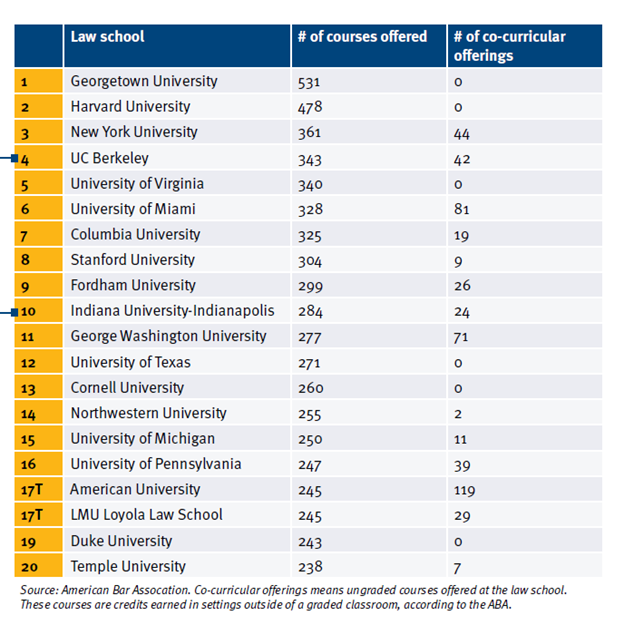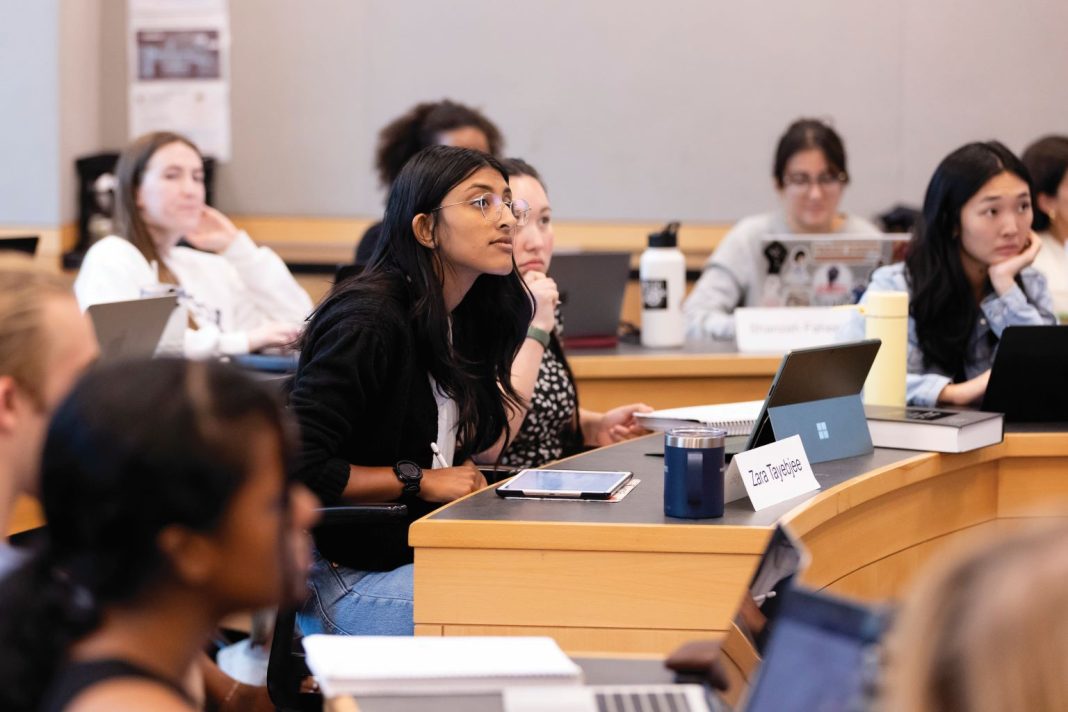A wide range of courses and co-curricular activities allow you to explore your interests and broaden your knowledge base.
Several considerations go into choosing a law school. They include tuition cost, scholarship potential and location. But there’s another important one that isn’t as flashy as the others: the variety of available courses to choose from.
Most aspiring law students have a good idea of what area of law they want to specialize in before they begin applying to potential schools. It’s only natural to be drawn to a particular subject. But what if you pick a school with a great reputation for its tax law courses and then realize you don’t enjoy tax law?
This is why it’s wise to choose a school with a wide variety of courses as well as numerous co-curricular offerings, extra-curricular activities, externships and alumni support systems.
“Many students that apply may be coming right from undergrad, and so they may not have the chance or the opportunity to really explore what it’s like to experience different areas of law,” said Tim Luczak, assistant dean of enrollment management at Indiana University Robert H. McKinney School of Law. “Going to a law school that has these different course offerings allows students to get exposure to something that they may never have experienced before and may actually truly find a passion in.”
Joseph Lindsay, interim assistant dean of admissions at University of California, Berkeley, School of Law, said potential students should take stock of what skills and interests they want to develop during law school.
Lindsay also recommends researching a school’s faculty, what their expertise is, and what you’re going to be able to glean from your time at the law school that will align with your interests.
Gaining experiential skills while in law school is another essential benefit for students.
Katrin Hussmann Schroll, associate dean of enrollment management at University of Miami School of Law, said how much on-the-ground training students should have before graduation is an open question.
“Our feedback says [employers] want good writers, people who know how to think, but also people who understand what we’re talking about when they come to practice,” she said. “We have practitioners coming back to law school to teach students in courses that are popular and require additional levels of training. It would take a lot more time in the employment sector to learn all of that, and it’s much better for students to get that education before they graduate. They become a more coveted employee.”
Law students often change their areas of interest. It typically happens during the second year of law school, since the first year is usually focused on general classes that set the groundwork for later specializations.
Lindsay said there is no stigma attached to pivoting to a different concentration, and there’s plenty of time to get the required courses completed before graduation.
Sometimes change is prompted not by a dislike for the student’s original area of interest. It may be triggered by the student being exposed to a specialization they had not been aware of before. Or sometimes it’s simply a narrowing of focus into a specialized field within a larger one.
“With the things that students are hoping to do, they’re able to narrow it down into an area and then realize, ‘Oh, this is where I can be more impactful. This is what aligns with my interest,’” Lindsay said.
The opportunities available at a law school are sometimes connected to interdisciplinary courses at the school’s parent university.

Luczak said an IU McKinney Law student can earn a dual degree in law and another field.
“It’s for those students that want to get an MBA or earn their master’s in social work or health administration,” he said. “It does add a year, but it still shrinks the amount of time it would take to earn two degrees separately, because some of the classes will count for both degrees.”
How can students be sure a school will have the courses they’re interested in? What should they look for when researching a school?
Hussmann Schroll said career counselors can be immensely helpful in determining what courses are available and most beneficial.
“As you do internships and learn more about what you hope to get in terms of employment post-law school, then you have the bridge of that person guiding you along, both on the academic achievement side [and] on the career side to make sure that those course selections make sense,” she said.
Lindsay said students should consider several things during their law school selection process and recommends that students make a spreadsheet to keep track of not only such things as application deadlines, requirements, scholarship opportunities, course variety and specific study areas available but also the more granular things such as the number of faculty and what their areas of expertise are, clinics, journals and opportunities to get involved with the community.
Luczak said reaching out to the admissions office is a great way to get a handle on a school’s offerings. Many schools will have current students available to share their experiences, which is incredibly valuable.
Hussmann Schroll said the best way to learn about a school is to go on campus tours and talk to people on the ground.
Talking with current students and asking good questions can give you a good sense of what a particular law school will be like, she said.
This article appeared in the 2025 Spring issue of preLaw magazine.


